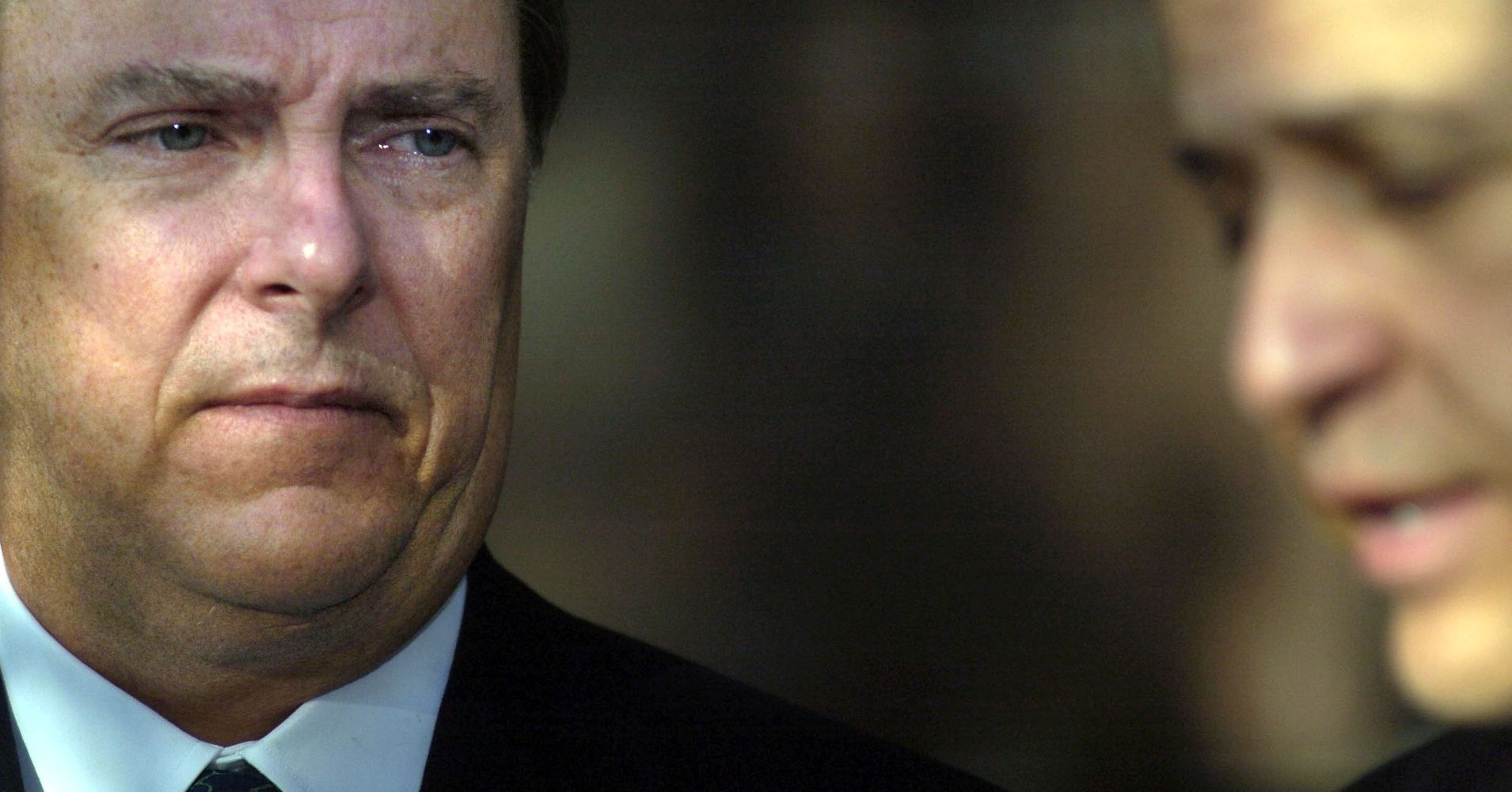
Former Enron CEO Jeffrey Skilling is looking at ways to return to the energy business, according to two sources familiar with his activities. Among the ventures he is considering is an idea he came up with in 2015 — and put to paper — while serving a federal prison sentence for his role in Enron’s 2001 collapse.
Skilling, 65, completed that sentence last month, and has been meeting with friends and former colleagues since his release into a residential re-entry program in Houston last August. News of his possible return to the industry was first reported Friday by the Wall Street Journal.
Skilling declined to comment.
The sources described Skilling’s idea, broadly, as a software program for oil and gas investors. They stressed that the project is in its early stages. No investors have put any money into the venture, though some individuals who provided input have been required to sign non-disclosure agreements. Skilling developed the idea as an inmate at a federal correctional facility in Montgomery, Alabama, and apparently worried for the rest of his sentence that someone else would come up with the idea before he got out.
Among those Skilling has been discussing his ideas with, the sources said, is Lou Pai, the former head of Enron’s Energy Services division, now an industry consultant. Pai could not be reached for a comment.
Contrary to other reporting, the sources told CNBC that the venture does not involve cryptocurrency or blockchain technology. And they said it is one of a number of paths Skilling is considering in hopes of returning to the industry he knows best.
A former McKinsey & Company consultant, Skilling helped transform Enron from a stodgy pipeline company into an “asset-light” energy giant, with interests ranging from natural gas trading to power generation, and even a hand in the nascent broadband industry. He joined Enron full-time in 1990 and was named CEO in February of 2001. But he abruptly resigned that August, citing personal reasons.
By the fall of that year, the company fell into a death spiral sparked by the discovery of accounting irregularities, including questionable deals by Chief Financial Officer Andrew Fastow. The company also suffered from a plummet in the value of its international assets, and market turmoil following the September 11 attacks. Once the seventh largest U.S. corporation by revenue, Enron declared bankruptcy on December 2, 2001, the largest corporate collapse in U.S. history at the time.
Congressional committees and a U.S. Justice Department task force set out to pinpoint blame — including investigating whether Skilling knew about problems at the company before his abrupt departure. Skilling denied such knowledge. Nonetheless, a federal jury in 2006 convicted him on 19 out of 28 criminal counts including fraud, conspiracy, and insider trading. He was sentenced to 24 years in prison and ordered to forfeit $45 million.
Skilling has steadfastly maintained his innocence — which the sources said remains the case today. Nonetheless, in 2013 he agreed to drop his remaining appeals in exchange for the government recommending his sentence be reduced to 14 years. He ultimately served 12 years before his release in February.
Since then, the sources said, Skilling has not only been reconnecting with friends and former colleagues, but also learning about technologies that did not exist before he went to prison — from smartphones to stretch denim.
In all, 21 people were convicted in the Enron scandal, and accounting firm Arthur Andersen was forced out of business after it was found guilty of obstruction of justice. The Supreme Court later overturned the conviction, but too late for 85,000 Andersen employees who lost their jobs.
Some 4,000 Enron employees lost their jobs following the bankruptcy, and many lost retirement savings that were heavily invested in the company’s stock. The city of Houston, which identified heavily with a company once considered among the most innovative in the world, took years to regain its swagger.
Skilling served by far the longest sentence of any of the Enron defendants. Former Chairman Kenneth Lay was convicted in the 2006 trial but died before he could be sentenced. Fastow, who pleaded guilty to fraud and conspiracy and testified against his former bosses, served six years in prison.
Today, Fastow lectures on corporate ethics before students and business groups, and he works with an artificial intelligence company that seeks to help businesses root out fraud.

